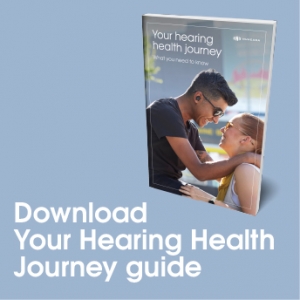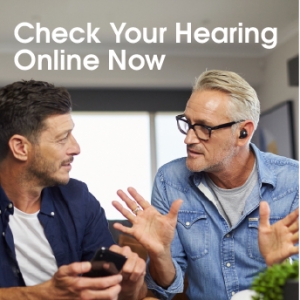
Do you struggle to hear, but only when it comes to specific voices or sounds? For example, you might have no trouble hearing the local newscaster’s voice on television at night, but you’re unable to hear the birds chirping outside or a small child speaking.
If the above scenario sounds familiar, you may be suffering from high frequency hearing loss.
While hearing loss is prevalent in older Americans, this isn’t an issue that is isolated to the over 65 crowd. According to a recent study published by JAMA, the number of U.S. adults ages 20 and older with hearing loss is expected to increase from 44 million in 2020 to 74 million by 2060. This can be caused by such things as loud music, certain medications and illnesses, damage to the eardrum, and, of course, aging.
Being unable to hear at higher ranges is one of the first signs of hearing loss. While this can create a variety of challenges in your life, it is also something you can address with the right hearing devices.
What is High Frequency Hearing Loss?

High frequency hearing loss refers to having trouble hearing sounds in the 2,000 to 8,000 Hertz (Hz) range. This happens when sensory hearing cells within your ear’s cochlea are damaged or die.
These hair cells are charged with creating electrical impulses from the sounds that are collected by your ears. Your brain will then translate those electrical impulses into a sound that it recognizes. The lower part of the cochlea translates high-frequency sounds and lower-frequency sounds are perceived by the hair cells at the top. When damage occurs from the bottom up, higher-frequency sounds are impacted first.
Adults that have this type of hearing loss might have more difficulty understanding children’s and female voices more than male voices. They also might have trouble hearing a doorbell, phone ring, or microwave oven beep.
Speech can become difficult to understand with high frequency hearing loss. When children suffer from this, it can severely impact their ability to learn language and speech as well as advance in school.
Where speech is concerned, some consonants like f, th, and s are more difficult to hear. This is because they are generally spoken at a higher audible frequency than other letters such as j, z, and g. So, a person might have difficulty hearing and understanding words like “this,” “taste,” and “first.”
Common Causes of High Frequency Hearing Loss
High frequency hearing loss can impact people of all ages and backgrounds. Some of the most common causes of this type of hearing issue are:
- Noise. The National Institute on Deafness and Other Communication Disorders (NIDCD) reports that over 10 million people in the U.S. alone suffer irreversible damage from noise-induced hearing loss. Each day, up to 50 million Americans are exposed to dangerous levels of noise. This can happen from a single exposure, such as an explosion, or long-term exposure to noise over 85 decibels (dB).
- Genetics. Family history can play a role in hearing loss. It’s possible that you are genetically predisposed to this condition if you have family members that have suffered from high frequency hearing loss.
- Aging. When the aging process leads to hearing loss, it’s referred to as presbycusis. This is a slower process that generally impacts both ears and is more difficult to notice. The first sign is the inability to comprehend speech in certain environments and hear high-frequency sounds.
- Disease. Certain diseases can lead to high frequency hearing loss. In children, this includes chronic untreated ear infections, also known as chronic otitis media. In adults ages 30 to 50, Meniere’s disease can lead to tinnitus, vertigo, and partial hearing loss.
- Medication. Some types of drugs can lead to high frequency hearing loss. These include aminoglycoside antibiotics, some chemotherapy drugs, and aspirin taken in large quantities.
Address High Frequency Hearing Loss with a Hearing Device
While it might be disheartening to learn that you or someone you care about is struggling with high frequency hearing loss, you do have options. Hearing aids are one choice, but they can be a complex and expensive one, and many people find that they are not ready to investigate this type of solution.
Innovative new hearing devices known as hearables offer another alternative. For example, IQbuds2 MAX employ cutting-edge technology to help amplify only the frequencies that are impacted by hearing loss. The device learns and adapts to your unique hearing profile, giving you the assistance you need when you need it.
And you can forgo any cumbersome screenings or appointments with Nuheara’s solutions. You simply set them up in the comfort of your own home. Learn more about how Nuheara’s hearing buds can help enhance your hearing and your connection with the world.
Hear From a Customer Who Struggled with High Frequency Hearing
Learn about how Marino has used his IQbuds MAX to bring the sounds of music and conversations back to life:


